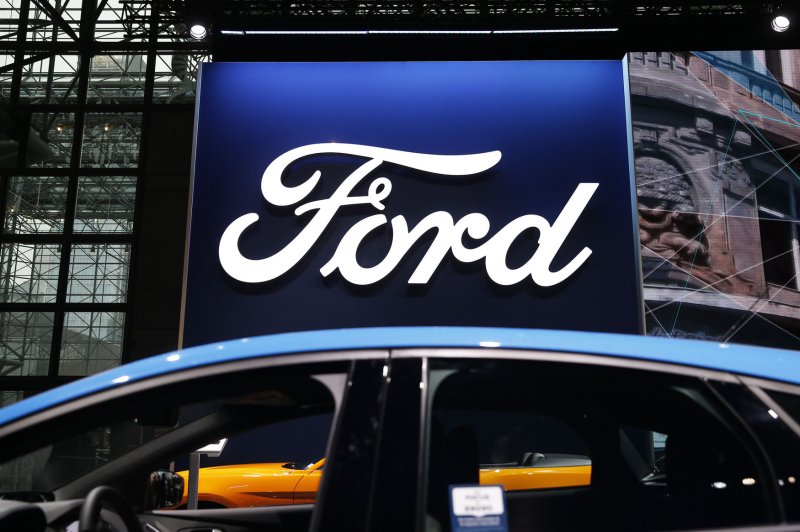Ford Motor Co. calling for dialogue, not a trade war, as economic tensions between the United States and China spread through various U.S. economic sections. File Photo by John Angelillo/UPI |
License Photo
April 5 (UPI) -- The interdependent trade relationship between the United States and China is a positive connection, not a weakness, Ford Motor Co. said.
U.S. trade policies have unsettled some of the traditional backbones of the world's largest economy. This week, the U.S. Environmental Protection Agency called for a rollback of tighter fuel and emissions standards for the automotive industry, which brought criticism from consumer advocates and state attorneys general.
Existing standards were drafted by the EPA under former President Barack Obama, the National Highway Transportation Authority, which regulates fuel economy, and the auto industry.
In a recent letter to the EPA, the U.S. Alliance of Automobile Manufacturers said no conventional vehicle yet meets the target set by Obama in 2012 and, to get up to speed, the industry would need to spend about $200 billion to comply with the rules.
Now, with billions of dollars of trade targeted in a potential trade war between China and the United States, Ford Motor Co. said it was supportive of dialogue.
"We continue to believe both countries value a vibrant auto industry and understand the interdependence between the world's two largest automotive markets," the company said in a statement.
China has called for consultations under World Trade Organization agreements on recent U.S. steel and aluminum tariffs, which were questioned by the U.S. energy sector. Most of the U.S. steel industry targets the automotive industry, which leaves pipeline companies dependent on imports.
Dennis Shea, the U.S. envoy to the WTO, said in a letter that China's request, however, is "completely baseless" because those "tariffs address a national security threat to critical industries and are not part of a safeguard action."
When the tariffs were announced, U.S. Chamber President and CEO Thomas J. Donohue said President Donald Trump was wrong to use tariffs as a way to counter Chinese trade practices. By his read, those tariffs would take money out of the pockets of American taxpayers and potentially be "devastating."
In a letter to Trump, the National Association of Manufactures said action is needed to address lingering trade issues.
"Tariffs are one proposed response, but they are likely to create new challenges in the form of significant added costs for manufacturers and American consumers," NAM President and CEO Jay Timmons said in a statement.
JPMorgan Chase CEO Jamie Dimon said that "anything that starts to resemble a trade war creates risk and uncertainty to the global economic system."















